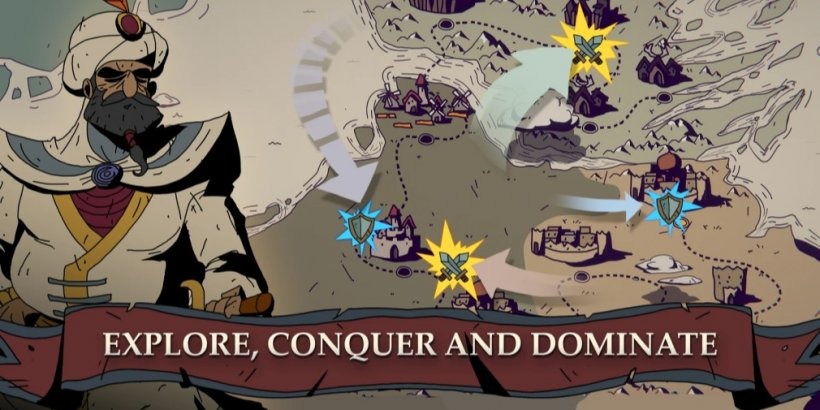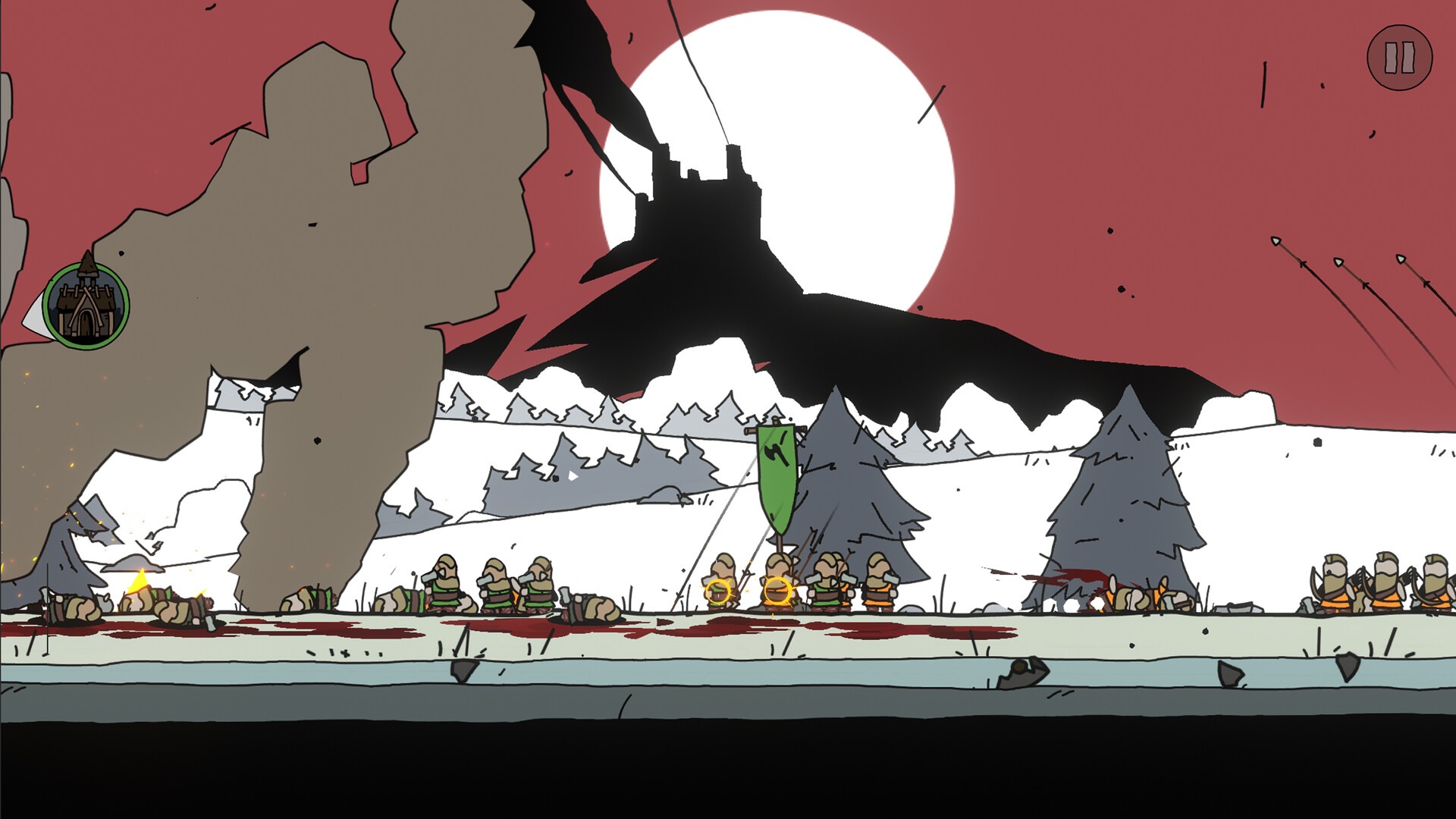Betrayal, Alliances, and Empire: What to Expect from Parabellum on Mobile
Popular Now
 Black Myth: Wukong
Black Myth: Wukong
 EA SPORT FC 25
EA SPORT FC 25
 Geometry Dash
Geometry Dash
 Candy Crush Saga
Candy Crush Saga
 Schedule I
Schedule I
 BeamNG.drive
BeamNG.drive
 Gacha Club
Gacha Club
 Rust
Rust
 Counter-Strike 2
Counter-Strike 2
 FIFA 23
FIFA 23  The mobile strategy genre is a crowded space, dominated by titles that often rely on similar city-building and resource-management mechanics. However, a new contender is poised to disrupt the market with a fresh focus on political intrigue, shifting alliances, and the ultimate test of loyalty: Parabellum. Coming to iOS and Android, this new release promises to be a departure from the typical mobile 4X game, introducing a dynamic, player-driven narrative where betrayal is not just a possibility, but a core gameplay mechanic.
The mobile strategy genre is a crowded space, dominated by titles that often rely on similar city-building and resource-management mechanics. However, a new contender is poised to disrupt the market with a fresh focus on political intrigue, shifting alliances, and the ultimate test of loyalty: Parabellum. Coming to iOS and Android, this new release promises to be a departure from the typical mobile 4X game, introducing a dynamic, player-driven narrative where betrayal is not just a possibility, but a core gameplay mechanic.
While the name “Parabellum” has been associated with various projects, from a 2022 Steam beta to a 2024 indie game announcement, the upcoming mobile version appears to be a distinct title designed specifically for the mobile platform. It aims to combine the deep, strategic elements of traditional PC strategy games with the accessibility and social dynamics of mobile gaming. This highly anticipated title is set to join the ranks of successful mobile strategy games like Last War: Survival Game and Whiteout Survival, but with a unique twist that could attract a new kind of player.
City Building and Strategy: The Foundation of Power
At its core, Parabellum is a city-builder and strategy game. Players will start with a small settlement and be tasked with developing it into a formidable empire. This involves all the classic elements of the genre: gathering resources, constructing buildings, researching new technologies, and training an army. The game’s success hinges on a well-designed progression system that feels both rewarding and challenging. Players will need to make critical decisions about resource allocation and technological advancement, deciding whether to focus on economic growth, military might, or defensive structures.
The strategic layer of the game is where it begins to diverge from the norm. Instead of a single, all-encompassing world map, Parabellum is expected to feature a system of territories and alliances. Players will need to form powerful pacts with one another to survive and thrive. This is where the game’s innovative social dynamics come into play. Diplomacy will be as important as military power, and the ability to forge strong relationships—and to know when to break them—will be the key to victory. The game’s economy is expected to be deeply intertwined with these alliances, with trade routes and shared resources making cooperation a necessity.
- Hybrid Gameplay: Combines familiar city-building and resource management with a focus on real-time strategy (RTS) combat and diplomacy.
- Dynamic Alliances: Players must form and maintain alliances, with the core gameplay loop revolving around trust, cooperation, and strategic betrayals.
- Resource-Driven Conflict: Alliances and wars will be fueled by the need for specific resources, creating a living, breathing world with ever-shifting power dynamics.
The Betrayal Mechanic: A Game of Backstabbing and Cunning
The most intriguing aspect of Parabellum is its central theme of betrayal. In a genre where alliances are often static and based on mutual convenience, this game introduces a system where loyalty is a finite resource. A player who betrays their allies might gain a short-term advantage, such as capturing a rival’s city or seizing a valuable resource vein, but at the cost of their reputation. This creates a high-stakes, high-reward decision-making process that will likely lead to dramatic moments and viral content, a major driver of user acquisition in the mobile market.
This betrayal mechanic could also be a major source of revenue. The game could feature exclusive units, powerful artifacts, or in-game bonuses for those who successfully pull off a betrayal. This kind of high-value, high-drama gameplay could lead to significant LTV (Lifetime Value) from players who enjoy competitive, social deception. The psychological element of knowing who to trust and when to strike will differentiate this game from the countless others on the App Store and Google Play, making it a potentially massive hit for both players and investors.
 Monetization and The Future of Mobile Strategy
Monetization and The Future of Mobile Strategy
Like many successful mobile games, Parabellum is expected to be a free-to-play title with a hybrid monetization model. It will likely include in-app purchases for premium currency, resources, and cosmetic items. The potential for a battle pass system, rewarding players for their time and progression, is also high. However, the game’s true financial success will likely come from its unique gameplay loop. The emphasis on alliances and betrayal could lead to a highly engaged user base, driving up key metrics like ARPDAU (Average Revenue Per Daily Active User) and retention rates.
This is a major step forward for the mobile strategy genre. Instead of simply cloning successful PC games or rehashing old mechanics, Parabellum aims to innovate. By weaving a player-driven narrative of alliances and deceit into its core gameplay, it offers a new kind of challenge—one that tests not only a player’s strategic mind, but also their social cunning. In a market where millions of dollars are spent on user acquisition and marketing, a truly unique and engaging gameplay experience is the best way to stand out. Parabellum, with its promise of city-building, strategy, and betrayal, may just have what it takes to be the next big mobile hit.









 Monetization and The Future of Mobile Strategy
Monetization and The Future of Mobile Strategy